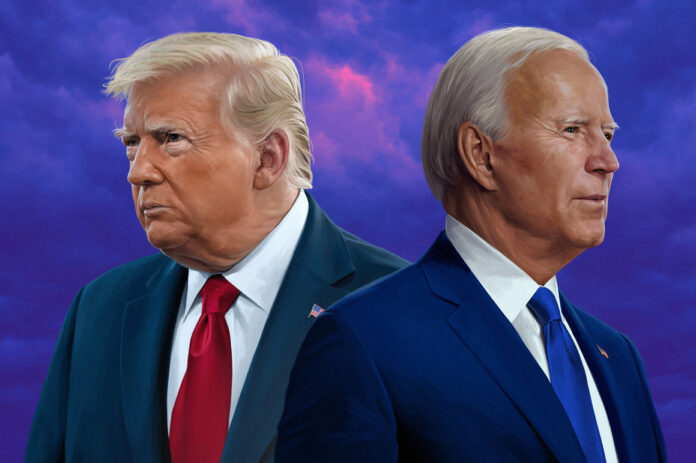
President Trump will become only the fourth president in US history to not attend his successor’s inauguration.
The last time it happened was in 1869, when outgoing president Andrew Johnson refused to travel to the ceremony in the same carriage as President-elect Ulysses Grant.
Media outlets previously reported that Trump was planning to be at his golf course in Scotland, but Scottish First Minister Nicola Sturgeon said she would not allow him to enter the country.
President-elect Joe Biden won’t officially make his move to the White House until inauguration day – a political parade of sorts, when the Democrat and his Vice-President Kamala Harris take the oath of office.
From the guest list to Covid-19 changes, to new security concerns, here’s everything you need to know about the big day.
What is the inauguration?
The inauguration is the formal ceremony that marks the start of a new presidency, and it takes place in Washington DC.
The only required feature is that the president-elect recite the presidential oath of office: “I do solemnly swear that I will faithfully execute the Office of President of the United States, and will to the best of my ability, preserve, protect and defend the Constitution of the United States.”
Once he utters these words, Mr Biden will then take his place as the 46th president and the inauguration will be complete (but that’s not all – celebrations follow).
Kamala Harris will become vice-president once she takes the oath of office, which usually happens just before the president is sworn in.
When is Biden’s inauguration?
By law, inauguration day is 20 January. Opening remarks are usually scheduled for around 11:30 EST (16:30 GMT) and Joe Biden and Kamala Harris will be sworn in at midday.
Mr Biden will move into the White House later in the day – his home for the next four years.
What will be the security be?
Presidential inaugurations typically involve detailed security plans, but even more so now, after a mob stormed the Capitol on 6 January.
So far it’s unclear what additional steps may be taken to protect attendees, but when Mr Biden is sworn in, DC will still be under a state of emergency, an order put in place by Mayor Muriel Bowser amid the chaos.
The DC National Guard, which was called in on 6 January, will also remain mobilised for 30 days, meaning they will be on hand for the inauguration proceedings to assist Capitol police.
Mr Biden has told reporters he is “not concerned about my safety, security, or the inauguration”. But Senator Amy Klobuchar, a member of Mr Biden’s inauguration committee, and who was at the Capitol during the incident, said she hoped for major changes to be made.
How will Covid-19 change this year’s inauguration?
In normal circumstances, Washington DC would see hundreds of thousands of inauguration revellers flock to the city, swarming the National Mall and selling out hotels – an estimated two million came when President Obama was sworn in for his first term in 2009.
But this year, the celebration’s size will be “extremely limited”, the Biden team has said, and it has urged Americans to avoid travelling to the capital.
Mr Biden and Ms Harris will still take their oaths in front of the US Capitol, overlooking the Mall (a tradition that started with President Ronald Reagan in 1981) but viewing stands that had been constructed along the parade route are being taken down.

